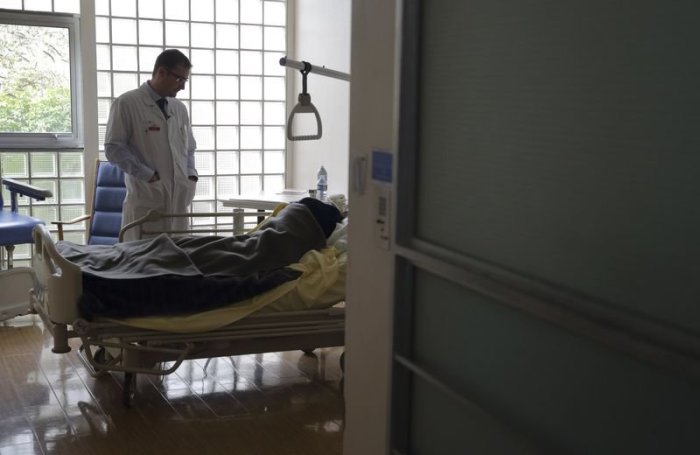Christian Doctor Slams UK Decision Allowing Patients to Be Starved, Dehydrated to Death

The chief executive of a Christian medical organization has spoken out against Monday's decision by the U.K. Supreme Court which announced that judges will no longer be consulted when doctors and relatives of patients decide to take away the life-support of severely brain damaged people.
Dr. Peter Saunders, chief executive of Christian Medical Fellowship, described in a blog post on Monday the concerns he has with the 126-point judgment, relating to the case of a 52-year-old man who was allowed to die in December despite the wishes of his family that his life support be turned off earlier.
"Patients with permanent vegetative state (PVS) and minimally conscious state (MCS) can now be effectively starved and dehydrated to death if the medical staff and relatives agree that this is in their 'best interests,'" Saunders wrote.
"People with PVS (awake but not aware) and MCS (awake but only intermittently or partially aware) can breathe without ventilators but need to have food and fluids by tube (clinically assisted nutrition and hydration or CANH)," he added.
"These patients are not imminently dying and with good care can live for many years. Some even regain awareness. But if CANH is withdrawn, then they will die from dehydration and starvation within two or three weeks."
The three critical rulings made by the court indicated that "there may come a time when life has to be relinquished because that is in the best interests of the patient."
Second, the court found that there is no difference between turning off a ventilator and removing a feeding tube, as both are "forms of medical treatment."
Third, PVS and MCS patients will now be treated in the same way as people with "severe stroke" a "degenerative neurological condition" or "other condition with a recognized downward trajectory" where "decisions to withhold or withdraw CANH [clinically assisted nutrition and hydration] are made on a regular basis without recourse to the courts."
Justice Jill Black declared:
"Having looked at the issue in its wider context, as well as from a narrower legal perspective, I do not consider that it has been established that the common law or the European convention on human rights ... give rise to the mandatory requirement, for which the official solicitor contends, to involve the court to decide upon the best interests of every patient with a prolonged disorder of consciousness before CANH can be withdrawn."
Natalie Koussa, a director at the charity Compassion in Dying, praised the decision, arguing that it brings about clarity.
"The court's decision also recognizes the fact that sometimes, sadly, it is in someone's best interests to withdraw treatment. It will allow those closest to a person — their loved ones and medical team — to feel supported and empowered to make the right decision for the person, even when it is a difficult one," Koussa said, according to The Guardian.
In opposition, Saunders, a former general surgeon, insisted that the changes "dramatically moved the goalposts on end of life decision-making."
"Once we accept that death by dehydration is in some brain-damaged people's 'best interests' we are on a very slippery slope indeed," he wrote.
"The Supreme Court has set a dangerous precedent. Taking these decisions away from the Court of Protection removes an important layer of legislative scrutiny and accountability and effectively weakens the law," he warned.
"It will make it more likely that severely brain-damaged patients will be starved or dehydrated to death in their supposed 'best interests' and that these decisions will be more influenced by those who have ideological or financial vested interests in this course of action."




























